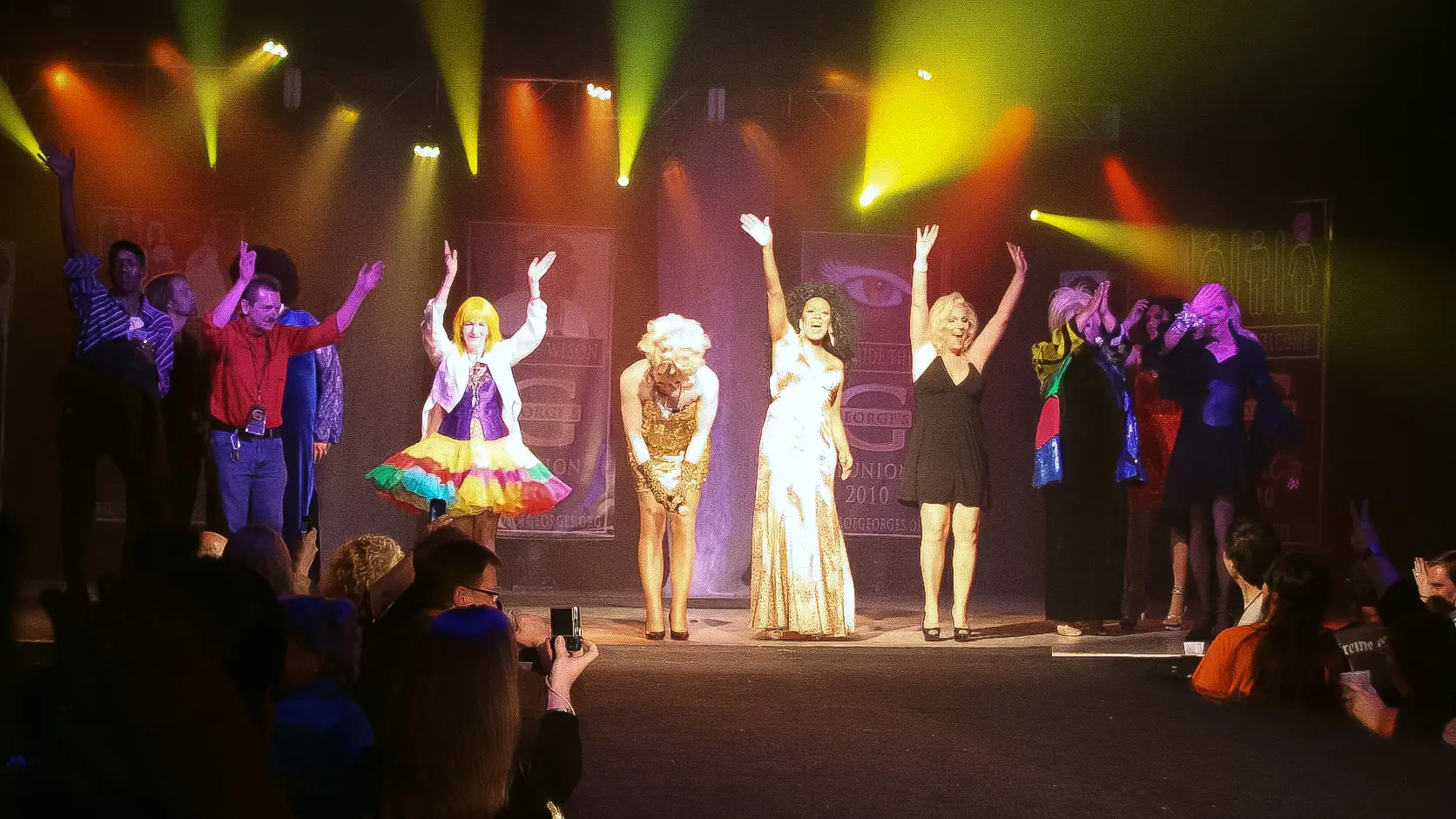For decades, George’s Disco was more than just a nightclub; it was a safe haven. It was where Memphis’s LGBTQ+ community could dance, celebrate, and exist without fear in a world that often demanded their silence. It was where drag queens ruled the stage, where friendships were formed over flashing lights and disco beats, and where a generation of queer Memphians found a home.
On October 23, 2010, more than 1,200 people gathered at Minglewood Hall to honor that history at the George’s Reunion. They came to remember, to reconnect, and to relive the nights that defined an era. But what happened that evening wasn’t just nostalgia—it was the beginning of something bigger. From the energy of that night, a committee led by Tracy Love—organized to produce the reunion—later evolved into Friends of George’s.
Friends of George’s began as an effort to keep the spirit of George’s Disco alive. It became a theater company blending drag, storytelling, and activism, ensuring that LGBTQ+ history is not just remembered but performed, celebrated, and shared. With every production, they highlight the resilience, humor, and defiance that have always defined queer life in Memphis.
That defiance became all too necessary in 2023, when Tennessee lawmakers targeted drag performers with a restrictive law that threatened not just artistic expression, but LGBTQ+ visibility itself. Friends of George’s took the fight to court, arguing that the law violated First Amendment rights. A federal judge agreed, striking down the law as unconstitutional. But the victory was short-lived. In 2024, the Sixth Circuit Court reversed the ruling, and in 2025, the U.S. Supreme Court refused to hear the case, allowing the restrictions to stand.
Yet if history has shown us anything, it is that Memphis’s LGBTQ+ community does not give up. Friends of George’s continues to perform, to gather, and to fight, just as the patrons of George’s Disco did decades ago when safe spaces were scarce and resistance was necessary for survival. The reunion may have been a single night, but its impact ripples forward. The performances go on, the stories are told, and the fight continues.
Pride is not just about the parades, the flags, or even the celebrations. It is about remembering where we came from and ensuring that the spaces we fought for remain standing. George’s Disco is long gone, but its legacy is very much alive—on stage, in the courts, and in every act of defiance that refuses to let history be erased.
